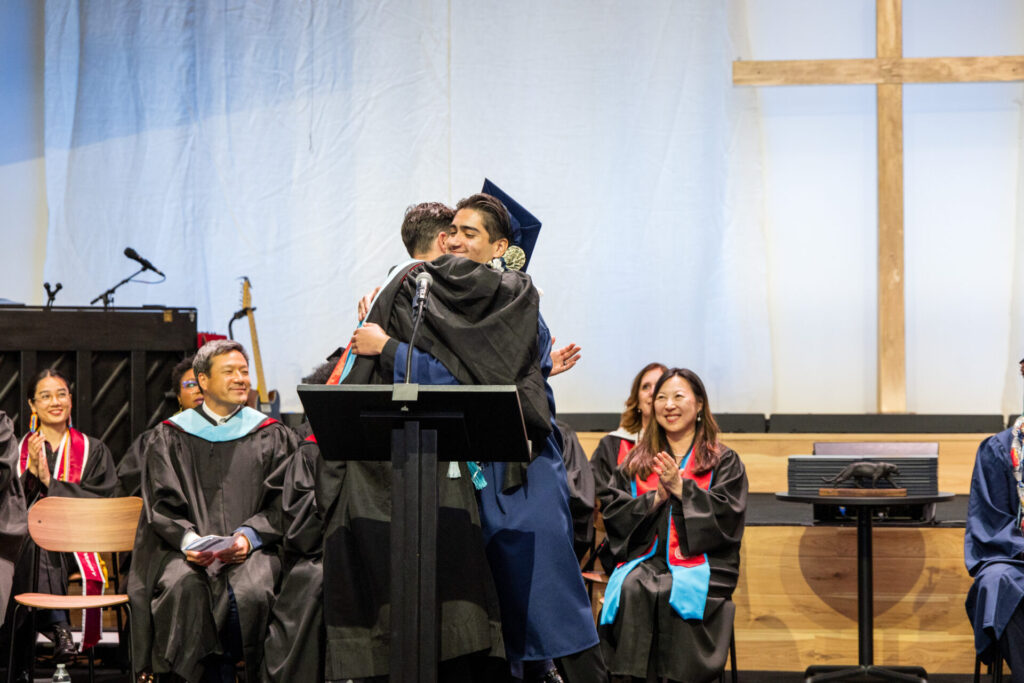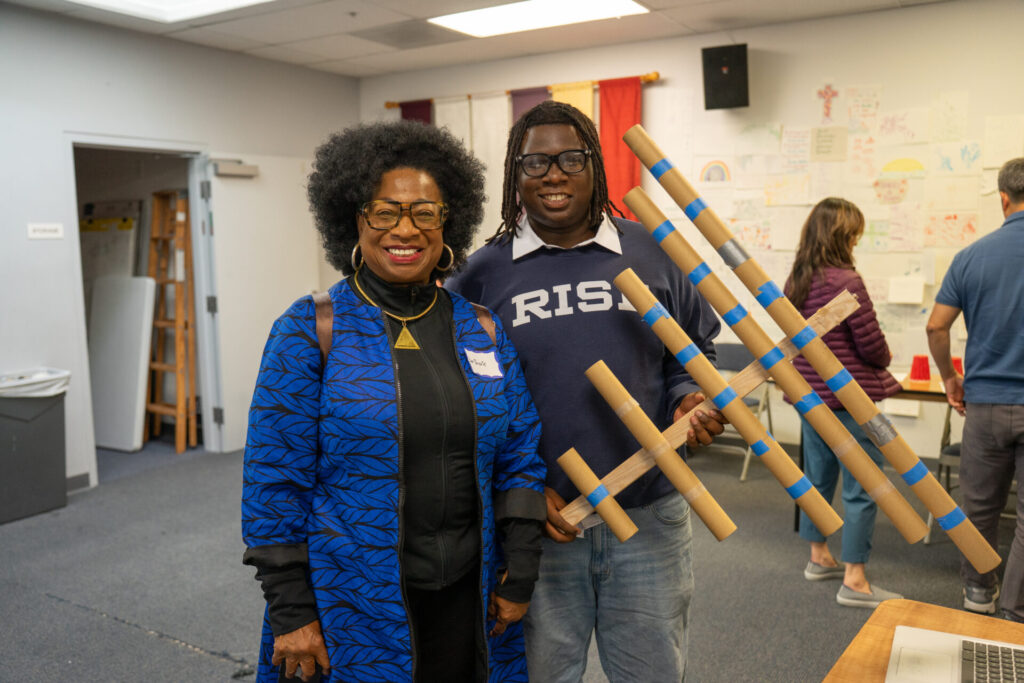Sweet pea pods, shiny swiss chard, and dinner plate dahlias are springing up from our local garden. As the students tend this bountiful planter box, they experience the cumulative effects of sunlight, rain, water, good soil, and care that make such a harvest possible. Miracle and Grace hold the bounty of our spring harvest in their hands–peas and peace. Tending to living things is good for our souls.
Similarly, our students grow and develop when exposed to positive cumulative effects–access to comprehensive health care, early childhood education, nutrition support, stable housing, mentoring. In an article put out by the American Academy of Pediatrics:
data-animation-override>
“Someone I didn’t know trusted me that I would do well in school. There’s something about having another person to believe in me.”
“Recent research suggests that non-cognitive skills, such as perseverance, empathy, and self-efficacy, remain malleable during adolescence and build on the cognitive skills developed during early childhood. Interventions such as adolescent mentoring, residential training (eg, Job Corps), and workplace-based apprenticeship programs can increase academic achievement, employment success, and other nonacademic accomplishments over the life span” (“Poverty and Child Health in the United States, American Academy of Pediatrics News and Journals, April 2016, Vol. 137, Issue 4).
One intervention that we take seriously for our population of students is adolescent mentoring–adults coming alongside students to give guidance and support. Not only do our students have adult volunteer tutors that help them daily, but also adult partners who exchange letters and meet for lunch with our students.
One sponsor shared, “This past week, I’ve been reading about poverty and toxic stress. The negative impacts of poverty and everything related are huge and seem unsurmountable. I have also been reading about the emerging evidence of the protective effects of healthy, adult relationships. When I came to sponsor week and saw all the adults–Roy, Susie, and all the teachers, and I experienced the student excitement in meeting their sponsors, I realized that these kids really can thrive through God’s work in relationships with you all (the Rise staff). And maybe me too!”
In his article, “For Vulnerable Teenagers: A Web of Support,” N.Y. Times writer Daniel Bornstein cites the success of Thread–an organization that supports students in the bottom quartile academically–with a community of adult volunteers who support and come alongside these scholars.
“One of the ideas underpinning Thread is that poverty should be defined as a condition of isolation, not just a lack of money. ‘Relationships are the key things that bring about real changes,’ said Sarah Hemminger, who co-founded Thread with her husband Ryan.”
We philosophically agree with the ethos of Thread in which a web of supportive relationships is central to combating deleterious social determinants. Through the 5:1 student to teacher ratio, small class size, community volunteer help, personal connections to local churches and businesses, and personal sponsors, a scholar is surrounded by a web of care.
The benefits of this web of care can be heard in scholar voices and reflections on sponsor week:
data-animation-override>
“I feel more loved and really supported. Meeting my sponsors made me excited because I got to know them. They told me that they wanted to support me to become someone big. That made me want to work extra hard.”
“Someone I didn’t know trusted me that I would do well in school. There’s something about having another person to believe in me.” – Keiara
“It is important because I have someone I can share my life with. I can tell them what I am doing good at and what I am struggling in.” -Cintli
“If you go through stuff, and you can’t tell your mom, there is someone else to talk to. I talk to my mom, my sisters, Dr. Ann, my family.” – La Kayla
“We shared things about our lives. I gained trust. He’s someone who wanted to meet me. And I wanted to meet him. Great to have another person there to support me.” – Luis
As plants and flowers need a variety of influences to grow and develop, our own Rise students need different people in their lives–parents, teachers, mentors, role models–to nurture them in their development. This is part of the slow, deliberate work of nurturing peace in our neighborhood and in the lives of our very precious students.
Sources:
“Poverty and Child Health in the United States, American Academy of Pediatrics News and Journals, April 2016, Vol. 137, Issue 4
“For Vulnerable Teenagers, a Web of Support,” Daniel Bornstein, NY TImes, March 8, 2016

